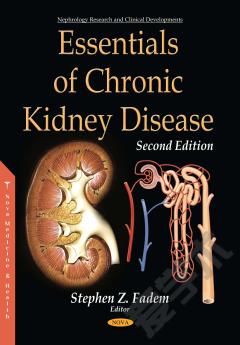Chronic Kidney Disease in Disadvantaged Populations
Chronic Kidney Disease in Disadvantaged Populations investigates the increased incidence and prevalence of kidney disease in vulnerable populations world-wide. The volume explores the complex interactions of genetic, biologic, cultural and socioeconomic factors such as the environment, and specific health behaviors that seem to be responsible for a significant proportion of the health disparities in these communities. Each chapter is written by leading experts in the field and analyzes the prevalence and incidence of pre-dialysis kidney disease in disadvantaged populations across both developed and developing countries. In addition, each contribution analyzes differentiated risk factors and compares the disparities in access to screening, prevention strategies, treatment protocols and renal replacement therapies. Chronic Kidney Disease in Disadvantaged Populations is essential reading for residents, fellows, clinicians and biomedical researchers working in nephrology, internal medicine, and epidemiology, especially those working in areas with high concentrations of disadvantaged populations.Presents a comprehensive account of both traditional and non-traditional risk factors for kidney diseaseExplores the mechanisms by which poverty increases the burden of kidney disease in these populations, barriers to access to renal health care, including renal replacement therapies, organ donation, and organ commercializationOffers the latest perspectives on outcomes in renal replacement therapies as well as prevention strategies
{{comment.content}}








 京公网安备 11010802027623号
京公网安备 11010802027623号